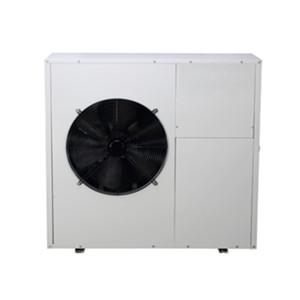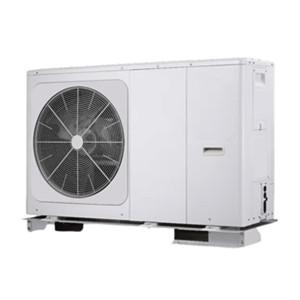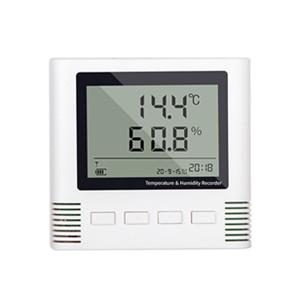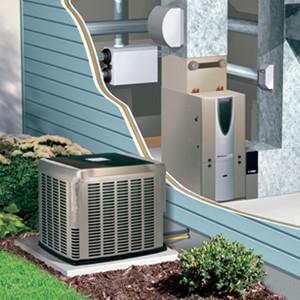Air Source Heat Pump Buying Guide
If you're interested in upgrading your current heat pump or are considering installing one in your home and you're still not quite sure which one is right for you, then we're here to help.
What is a heat pump?
A heat pump is a heating and cooling device that transfers thermal energy to and from a building by using a refrigerant. Simply put, in summer, heat energy is transferred outside to cool the house, and in winter, heat energy is transferred into the home to heat the house.
How does a heat pump work?
The basic function of a heat pump system is to draw in warm air from the room in which it is located, absorb the heat and moisture from it, and expel it outside, making the air that is pumped back into the room cooler and more comfortable.
To cool the air, heat is transferred to the external unit through a liquid called refrigerant contained within the coils. Just like water evaporates in the sun, this refrigerant converts from a liquid to a gas, absorbing heat from your home and transporting it outside.
As the refrigerant transports heat outside, the heat pump blows the freshly cooled air back into the room via a fan.
Once the hot refrigerant gas reaches the outdoor unit, the outdoor air takes its heat away, and the compressor turns it back into a liquid state to repeat the process again.
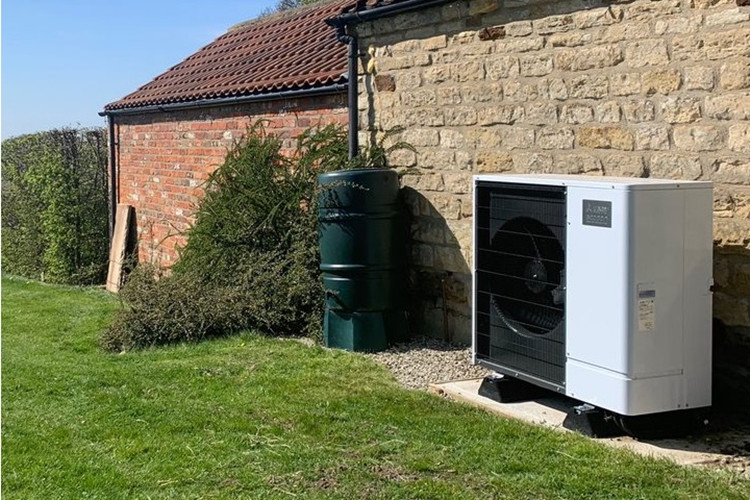
How to buy the best heat pump
A heat pump is a major investment, so you should carefully consider several factors before making a purchasing decision to ensure you get the most value out of it. We will cover these factors in the following sections.
Types of Heat Pumps
There are three main types of heat pumps: air source, ductless split and geothermal. All heat pumps work the same way but collect heat from different sources. Regardless of the type, all heat pumps should be installed by a professional HVAC technician who can determine the right size and product for your home and climate.
Air source heat pump
Air source, also known as air-to-air, is the most popular type of heat pump. Consisting of indoor and outdoor units, the system works by extracting heat from outdoor air and delivering it into the home. These heat pumps are inexpensive and take up little space. Since they use outside air as the heat exchange medium, these units work well in mild climates.
Split ductless heat pump
Split ductless heat pumps are also known as mini-splits. They consist of two units: an outdoor compressor and up to four indoor processors. These systems do not require plumbing and circulate the refrigerant through pipes connecting the indoor and outdoor units. Split ductless heat pumps are quiet, energy efficient and can be operated via remote control. They offer design flexibility and are ideal for homes without plumbing.
Geothermal heat pump
Ground source heat pumps are divided into ground source heat pumps and water source heat pumps. They transfer heat through a series of pipes buried in an outdoor loop. In addition to controlling temperature, geothermal heat pumps also control humidity. These systems require little maintenance and work well in extreme climates.
Heat pump subtype
In addition to the three main types of heat pumps, there are several sub-types, including hybrid heat pumps, solar heat pumps, and absorption or gas heat pumps.
Choose the right size
Size is a key factor when considering heat pumps. Choosing the right size will help you avoid issues such as inflated energy costs, extreme temperature fluctuations, unbalanced indoor humidity and short system cycle times. A heat pump that's too small will work too hard to provide the heat your home needs, while a heat pump that's too large will put out too much heat, causing inefficiency.
When it comes to size, it's more about the heating and cooling output of the device than its physical volume. Generally, heat pumps range in power from 1.2kW to over 10kW. Here are some factors to consider when choosing a heat pump size:
1. Whether it is mainly used for heating or cooling
2. Your local climate, including average seasonal high and low temperatures
3. Insulation level in your home
4. The size of your living space and the number of people living in it.
5. Compare the cost of heat pumps
6. Factors that affect heat pump cost include brand and quality, size and output, efficiency and unit type. Installation and placement will also affect the final cost. On average, installing a heat pump costs about $5,600. For accurate pricing information, including installation costs, you should contact your local HVAC professional.
Read Heat Pump Reviews
It is helpful to research reviews before buying a heat pump. Reviews give you insight into the strengths and weaknesses of a particular unit, and how it compares to other units in the range. When reviewing, focus on performance, temperature range, energy efficiency, sound levels, cost, features, reliability, and warranty.
Install
There are several different ways to install a heat pump system. To ensure optimum comfort, you should consider hiring a professional to install it for you.
Split System: This is the most common installation of any ductless heat pump. Indoor evaporation units are placed in attics, basements or closets, while condenser and compressor units are located outside in large metal boxes.
Packaging System: With this installation, all mechanical parts are packed in a large metal box outside. There is only plumbing in the house.
Mini Split System: Also known as a ductless heat pump system, this system is ideal for homes without ducts. The system works very similarly to an air source heat pump, but on a smaller scale.
Window heat pumps are great for homeowners looking to manage indoor temperatures without spending too much on their energy bills.
Choose the best supplier
Leomon is the largest heat pump manufacturer in China. We have more than 20 years of manufacturing experience in air source heat pumps. Please contact us. We will recommend the most suitable air source heat pump for you.
